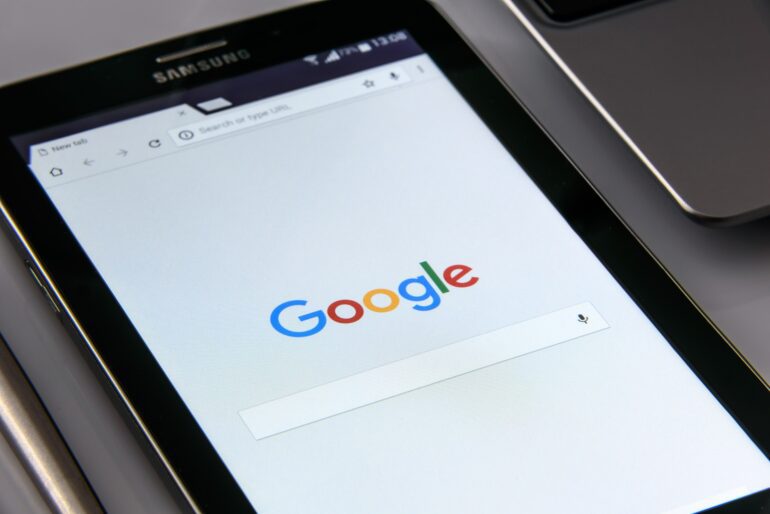TL;DR:
- Google plans to enhance search with videos and AI for a more visual and bite-sized experience.
- The move aims to target younger audiences worldwide, and it involves incorporating AI features like chat and more social media posts and short videos.
- The redesign comes as Google faces growing competition from TikTok, with more young people turning to the popular short-video app for information.
- The planned makeover promises to bring a new level of convenience and accessibility to users, especially younger generations, who rely heavily on visuals and short-form content.
- However, Google’s push towards AI comes with its share of concerns, such as the accuracy of AI and its impact on society and misinformation.
- Google plans to offer users attribution and literacy tools to address these concerns.
- The makeover of Google’s search engine promises to introduce new ways to surface a wide range of perspectives and content formats and emphasize the commitment to delivering high-quality information and supporting a healthy, open web as search evolves.
Main AI News:
According to recent reports, Google is gearing up for a major overhaul of its search engine. The tech giant is said to be making its search more “visual, snackable, personal, and human,” with the aim of targeting younger audiences worldwide. This move will involve incorporating artificial intelligence (AI) features like chat, along with more social media posts and short videos.
The Wall Street Journal, citing internal documents and sources familiar with the matter, reported that Google would encourage users to ask follow-up questions or swipe through visuals like TikTok videos in response to search queries. Google’s search page is one of the world’s most widely used web pages, handling billions of queries daily. Any change to its design would have a significant impact on the tech industry and larger culture and would introduce AI to the masses in a new way.
The decision to make Google’s search more visual and snackable comes as the company faces growing competition from TikTok, with more and more young people turning to the popular short-video app for information on various topics. Google began highlighting short-form videos in search results last year, and according to the Journal, such content will be more prominently displayed in the future.
Furthermore, the report claims that Google intends to feature more human voices as part of this shift, supporting content creators in the same way it has historically done with websites. This would likely involve an increase in the visibility of online forum posts and similar content in search results.
Overall, Google’s planned makeover promises to bring a new level of convenience and accessibility to users, especially younger generations, who rely heavily on visuals and short-form content. The implications of this shift on the tech industry and society at large remain to be seen, but one thing is clear: Google is not one to shy away from change and innovation.
Google’s planned search engine redesign comes amid intensifying competition from Microsoft’s Bing search engine, which recently incorporated AI chat technology. The announcement also precedes Google’s annual I/O conference, where the company is expected to showcase its AI products.
As reported by The New York Times last month, Google is developing an AI-powered search engine aimed at providing a more personalized, conversational, and anticipatory experience for users. Google CEO Sundar Pichai has also confirmed that the company plans to add AI chat to its search engine.
However, Google’s push toward AI comes with its share of concerns. The accuracy of AI and its impact on society has been a cause for concern. There is also the issue of misinformation, as AI bot responses and user-generated content, such as TikTok-style videos, can contain inaccuracies.
To address these concerns, internal Google documents suggest that the company plans to offer users attribution and literacy tools to enable them to use the content with confidence. Additionally, US Vice President Kamala Harris recently met with Pichai and the CEOs of Microsoft and OpenAI to discuss the risks of AI technology.
The makeover of Google’s search engine promises to bring more visual exploration features to the results page and introduce new ways to surface a wide range of perspectives and content formats. Google has also emphasized its commitment to delivering high-quality information and supporting a healthy, open web as search evolves.
However, as AI analyst Chirag Dekate pointed out, if Google falls behind in the generative AI boom, it may not be able to catch up. The search engine giant will have to balance the benefits of AI with its potential risks and make sure that users can trust the information they receive.
Conlcusion:
Google’s planned redesign of its search engine to be more visual and snackable, with a focus on incorporating AI features like chat, signifies a significant shift in the search engine market. This move highlights the growing importance of catering to younger generations who rely heavily on visuals and short-form content. With Microsoft’s Bing search engine also incorporating AI chat technology and Google’s push towards AI raising concerns about accuracy and misinformation, the search engine market is set for a more competitive landscape.
The market will likely see more emphasis on the delivery of high-quality information and the need for platforms to offer attribution and literacy tools to enable users to use the content with confidence. As search engines evolve, the ability to balance the benefits of AI with potential risks will be critical in shaping the future of the search engine market.

